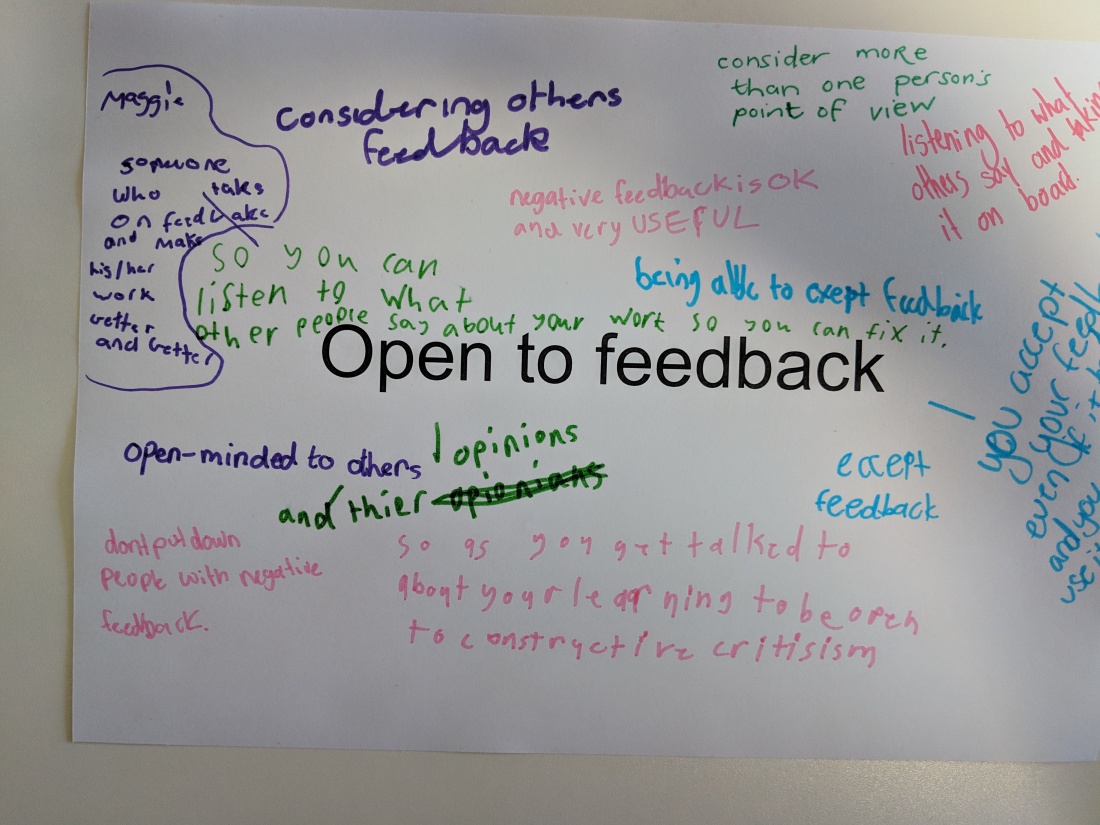 If I’m going to get these kids to trust me, in order for them to feel safe enough to be transparent about their learning, I’m going to need to establish an important norm within the learning community…self-awareness and being ok with my own imperfections.
If I’m going to get these kids to trust me, in order for them to feel safe enough to be transparent about their learning, I’m going to need to establish an important norm within the learning community…self-awareness and being ok with my own imperfections.
So on the second day, I sat down in front of them and typed this up on the whiteboard. They read it slowly and thoughtfully; fully transfixed by what their weirdo new teacher was doing next…
Dear 6 ****
This is my third year at **** and I’m starting to feel comnfortable with how things roll here as well as who you are as a community.
The first thing you sho9uld know about me is that I’m imperfect – just like you. I make mistakes every day, multiple times a day. I’ve already made a spelling mistake in this letter and I’m trying to be ok with it.
Sometimes I’m wrong about people. When I’m wrong, I’ll admit that I am. If I upset you or intimidate you, know that I’m much less scary when you talk to me one on one. I’ll always listen to what you have to say and I’ll always take you seriously. It will take me a while to get to know each of you well. Please be patient with me.
You need to be brave this year. You need to be braver than you’ve ever been. You’re going to have to bravely step out of your comfort zones and embrace each other’s quirks and oddities. We all have them and if you think you don’t, you’re wrong. Look for the good in each other and ASSUME GOOD INTENTIONS.
Kind regards
K
The thing that I’ve learned about sharing my weaknesses and fears is that it does the opposite of what I once expected. Judgment is rarely the response. Instead, it sparks empathy and builds authentic connections between people. It’s no different in children. Time and time again I am convinced that people telling me how good they are and how much they know, pushes my defensive buttons. On the flipside, when I’m being a know-it-all or fishing for compliments and praise, it comes from a place of insecurity, not self-assuredness. The best conversations I’ve had have been in the context of becoming intensely curious about each other based on a spark of empathy or familiarity of experience.
And the same is true for children.
When a learner expresses vulnerability, be it in the form of:
- a self-reflective comment
- a potentially incorrect answer (they know it may be wrong)
- a story of embarrassment or hurt
- an admittance of guilt
- an acknowledgment of failure
- an acknowledgment of wrongdoing OR
- a question they are scared to ask
what happens is rarely mockery. It is instead, recognition. Recognition of the feeling that one has in THAT MOMENT. That is the nature of empathy. Authentic recognition of the self in another’s fear, embarrassment, confusion or guilt. And this almost always leads to connection.
In the first few months of the year, I need learners to build relationships. With each other, with me, and with themselves as learners. The fastest way I know to make this happen is to model it myself.
This teacher does not equal all-knowing powerful expert in all areas.
This teacher is also:
- physically uncoordinated
- unsure of the true meaning of the word ‘zeitgeist’
- unclear about certain aspects of Australian politics
- avoidant of hook turns
- lazy about washing her car
- too talkative when meeting new people
- terrible with names
- fearful about the reaction this blog might get
- doubtful this blog will get any reaction
- curious about my need for praise and feedback
- poorly organised
- regretful about certain past choices
- anxious about certain future choices (and the list could go on)
I feel like a slow and consistent reveal of my areas for improvement is an important thing for my learners to witness. I have a need to learn and improve like everybody else. And if I want a culture of learner agency in my classroom, the learners need to know that there are no life experts in the room. That we are all learners. All imperfect. All on a journey.
Oh the power of honesty, transparency, vulnerability and modeling. What a great way to start the year with a new group of learners. Thanks so much for sharing.
LikeLike
Vulnerability, honesty, and trust – thank you for sharing 🙂
LikeLike